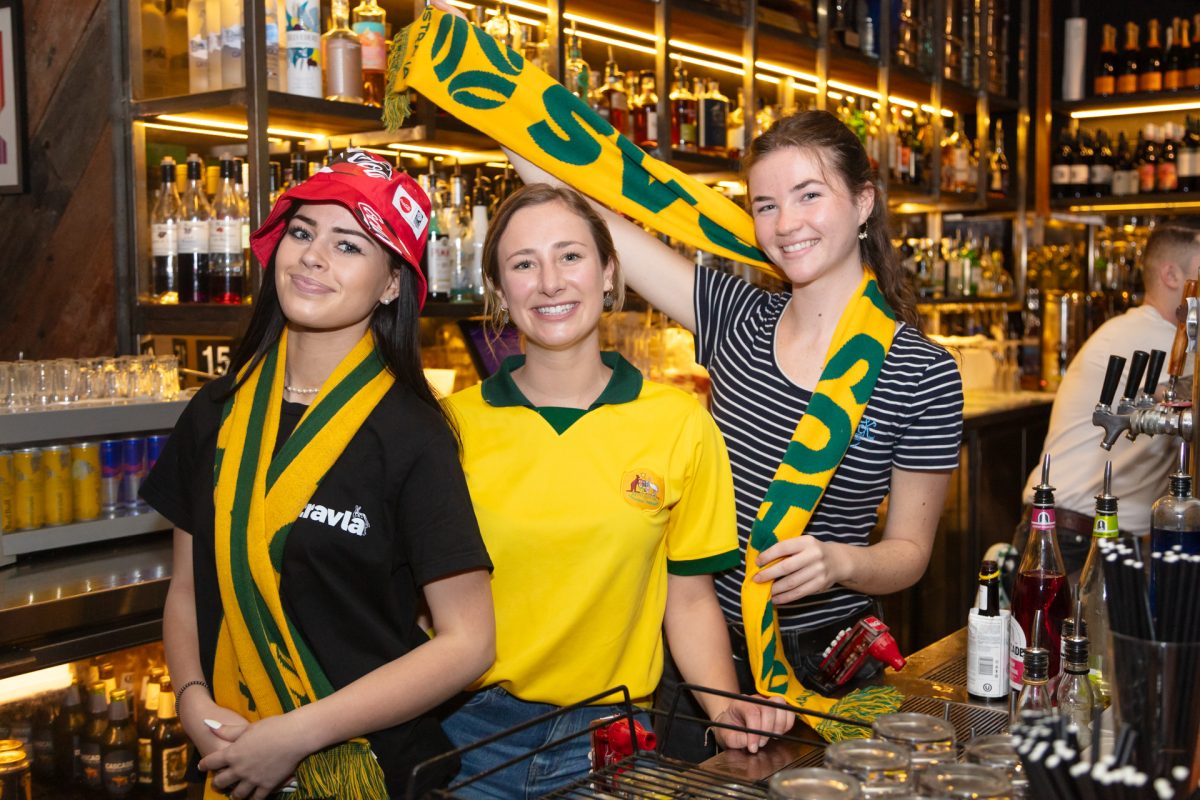
Canberrans in Garema Place watching the Matildas take on Sweden. Photo: ACT Government.
Across Australia, more than 11 million faces were glued to the screen on the evening of 19 August to watch the third-place play-off at the FIFA Women’s World Cup.
In Canberra, crowds gathered in Garema Place for a free public screening of the semi-final while several locations across the city – including Parliament House, the Carillion and light-rail stations – lit up green and yellow.
The game ultimately ended in defeat for the Matildas (or ‘Tillies’ for short) at the hands of Sweden, but the way the nation banded together in pride for their team – transfixed by their every move – has left lasting impressions.
The team’s name has been added to the dictionary as Australia’s Word of the Year for 2023.
Every year, the Australian National Dictionary Centre at the Australian National University (ANU) selects a word or phrase that has risen to greatness across the country.
Last year, the word was ‘teal’, honouring the 2022 Federal election and the rise of independent candidates who swept into traditional blue Liberal seats. The previous year’s ‘strollout’ was inspired by what many considered a slow roll-out of the COVID-19 vaccine during the pandemic. Other winners include ‘iso’, ‘Canberra bubble’, ‘Kwaussie’, and ‘democracy sausage’.

Sporting yellow and green at The Dock, Kingston. Photo: Thomas Lucraft.
The centre’s director, Dr Amanda Laugesen, said this year’s choice was easy.
“From the 1880s, ‘matilda’ was one of the names for a swag, a bag of possessions carried by an itinerant man looking for work – these days most people would only know this in relation to the song Waltzing Matilda,” she explains.
“It’s only since the mid-1990s that the women’s soccer team has been called the Matildas, but after this year’s World Cup, the word has once again cemented itself in the Australian lexicon.”
Although the exact origins of the term ‘matilda’ in Australian English are unclear, it ultimately stems from a female name.
“The original German name refers to strength in battle, so it’s an appropriate name for a team that has inspired so many people this year, particularly young women and girls,” Dr Laugesen says.
The Centre’s Word of the Year list of contenders is dominated by words related to last month’s Voice to Parliament referendum.
These include ‘noer’ for a person who voted no in the referendum, a ‘yesser’ for those who voted yes, ‘truth-telling’ as the “acknowledging and recognising the historical and ongoing mistreatment and injustices affecting Indigenous peoples in Australia”, and ‘hallucinate’, the generating of false or inaccurate information and presenting as fact by artificial intelligence (AI).
Original Article published by James Coleman on Riotact.





